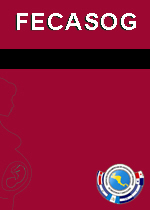Editorial
Authors
DOI:
https://doi.org/10.37980/im.journal.revcog.20211851Keywords:
editorialAbstract
The publication of scientific articles follows a series of guidelines that all authors must comply with. Each journal has its own peculiarities in terms of submission format, but the principles that govern the substance are similar throughout the world. The Federation's journal has endeavored to adapt to the principles established by international groups, such as the International Committee of Medical Journal Editors, in order to ensure the quality of the articles that are published and that represent the face of the journal.
However, one of the main problems that authors may encounter is what is known as publication bias. It occurs when the results of the experiment influence the decision to publish the article. They are the main reason why authors, mainly young authors, tend to worry if the results of a study are reported as negative or not statistically significant. It is a known practice, driven by the desire to only publish articles that can attract potential new subscribers or readers, who, in turn, would use these articles as a source of citation, improving the impact factor of the journal in question. The downside of this practice, besides the obvious, is that they inadvertently alter the balance of findings on a particular topic and insert a bias in favor of positivity.
Since the restructuring of the journal, we have embraced the Budapest initiative, proposed by the Open Society Foundation, to broaden the worldwide availability of scholarly and scientific information by allowing the author to give the interested reader free access to the fruits of his or her work. This implies not only publishing articles with negative or non-significant results, but also supporting, when the topic merits it, authors with research of general interest, carried out under strict ethical principles and following rigorous peer review processes. For this reason, this issue publishes an article not related to obstetrics, but which we believe, in the context of the pandemic that still plagues us, deserves to be published.
Knowledge is power. It is up to the readers to decide which data are useful to them, after a critical analysis of the literature and applied to the reality that surrounds us.
Downloads
Published
Issue
Section
License
Copyright (c) 2021 Infomedic Intl.Derechos autoriales y de reproducibilidad. La Revista RevCog es un ente académico, sin fines de lucro, que forma parte de la Sociedad Centroamericana de Ginecología y Obstetricia. Sus publicaciones son de tipo ACCESO GRATUITO y PERMANENTE de su contenido para uso individual y académico, sin restricción. Los derechos autoriales de cada artículo son retenidos por sus autores. Al Publicar en la Revista, el autor otorga Licencia permanente, exclusiva, e irrevocable a la Sociedad para la edición del manuscrito, y otorga a la empresa editorial, Infomedic International Licencia de uso de distribución, indexación y comercial exclusiva, permanente e irrevocable de su contenido y para la generación de productos y servicios derivados del mismo.








